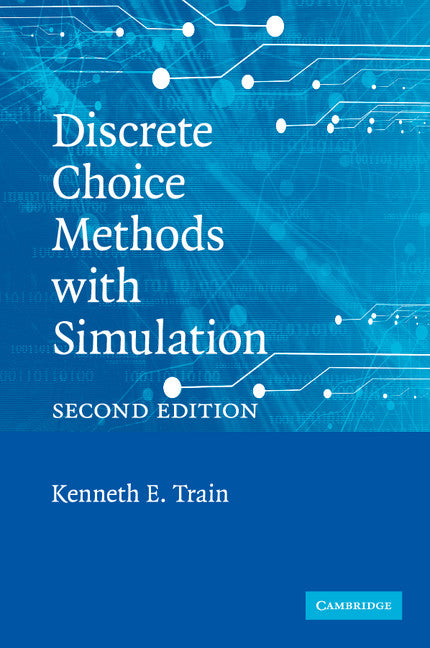Freshly Printed - allow 8 days lead
Couldn't load pickup availability
Discrete Choice Methods with Simulation
This book describes the new generation of discrete choice methods, focusing on the many advances that are made possible by simulation.
Kenneth E. Train (Author)
9780521747387, Cambridge University Press
Paperback, published 30 June 2009
400 pages, 46 b/w illus. 17 tables
22.9 x 15.2 x 2.3 cm, 0.53 kg
This book describes the new generation of discrete choice methods, focusing on the many advances that are made possible by simulation. Researchers use these statistical methods to examine the choices that consumers, households, firms, and other agents make. Each of the major models is covered: logit, generalized extreme value, or GEV (including nested and cross-nested logits), probit, and mixed logit, plus a variety of specifications that build on these basics. Recent advances in Bayesian procedures are explored, including the use of the Metropolis-Hastings algorithm and its variant Gibbs sampling. This second edition adds chapters on endogeneity and expectation-maximization (EM) algorithms. No other book incorporates all these fields, which have arisen in the past 25 years. The procedures are applicable in many fields, including energy, transportation, environmental studies, health, labor, and marketing.
1. Introduction
Part I. Behavioral Models: 2. Properties
3. Logit
4. GEV
5. Probit
6. Mixed logit
7. Variations on a theme
Part II. Estimation: 8. Numerical maximization
9. Drawing from densities
10. Simulation-assisted estimation
11. Individual-level parameters
12. Bayesian procedures
13. Endogeneity
14. EM algorithms.
Subject Areas: Probability & statistics [PBT], Economic statistics [KCHS], Econometrics [KCH]


